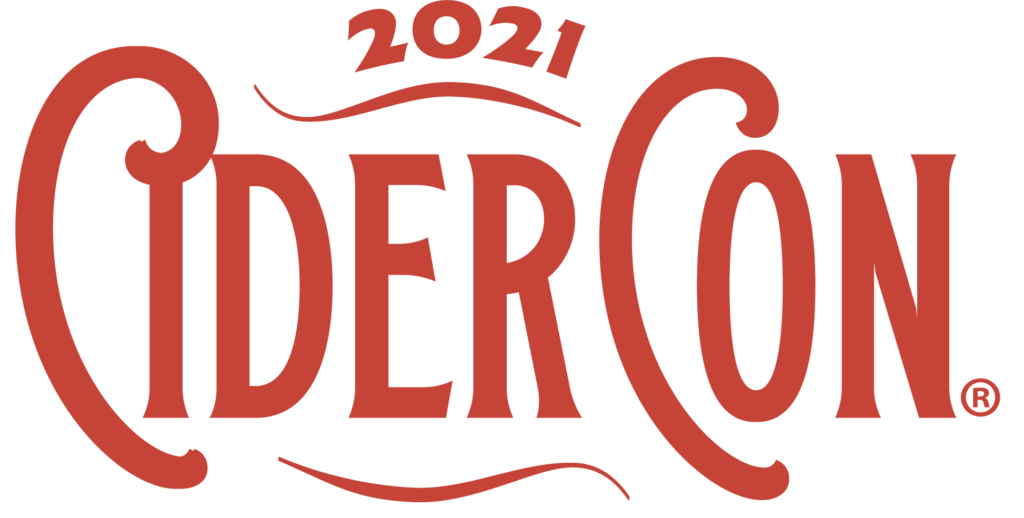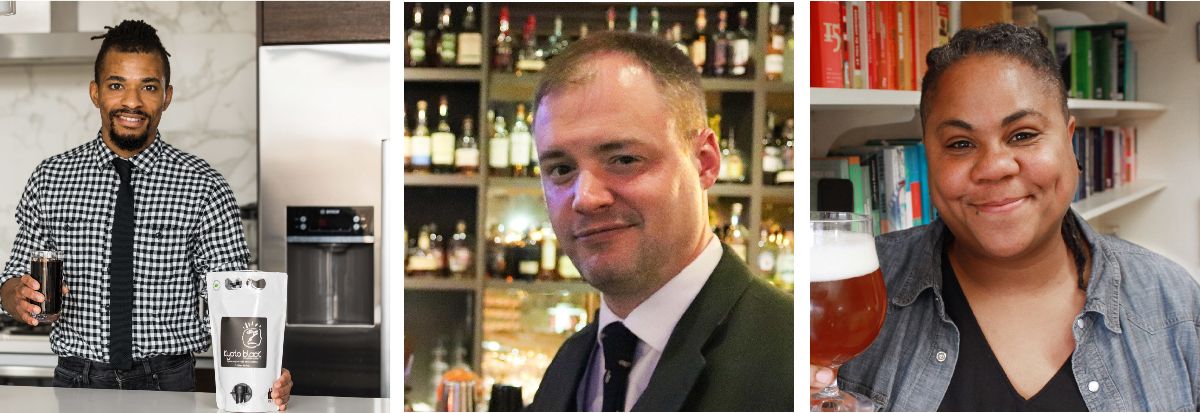Archive for November 2020
What’s New for CiderCon® 2021 This Week!
The 11th annual CiderCon is happening during February 3-5, 2021. Ready to grab your tickets? Click here! (Ask us about bulk discounts for your company.)
Each week we’re highlighting a few of our talented speakers and CiderCon® features with you. It’s going to be a virtual cider extravaganza!

Stephanie Hartman
For more than 20 years, Stephanie Hartman has provided Leader, Team and Organization Effectiveness support to large and small businesses in wide ranging industries such as financial services, technology, B2B professional services, restaurants and home services. Her client experience spans the range of large corporations to small family farms. Through her consulting firm, Catalyst Consulting, Stephanie has adapted planning and team development methods typically used in large corporate settings for practical use by small businesses. Stephanie’s presentation is brought to us by the sponsorship of Ciderpros.com
Julie Rhodes
Julie Rhodes is an authority on beverage sales, marketing, team management, distributor partnership management, supply chain logistics, and customer service. She is the owner of Not Your Hobby Marketing Solutions, a consulting company that offers online educational programs and customized coaching services designed specifically to teach business skills to craft beverage professionals. We’re excited to bring Julie to CiderCon as a featured speaker. If you missed her dynamite webinar on managing distributor relationships, check the webinar archives on our member page.
Belinda Kemp, PhD
Belinda is the Senior Staff Scientist in Oenology at CCOVI, Brock University, and Adjunct Professor of the Department of Biological Science, in the Faculty of Math and Science at Brock University, Ontario. As well as a wine scientist, Kemp gained previous practical still and sparkling winemaking experience in commercial wineries in NZ and the UK. Her current research is focused on the Maillard reaction in sparkling wines, wine flavor chemistry, the impact of sugar on wine aroma and flavor, leaf removal strategies according to grape variety and wine style, the influence of sour rot on sparkling and still wine flavors, and phenolic management of sparkling and red wines.
5 Things to Consider before Using Ground-Harvested Apples for Cider
By Bri Valliere, Fermentability Consulting & Education
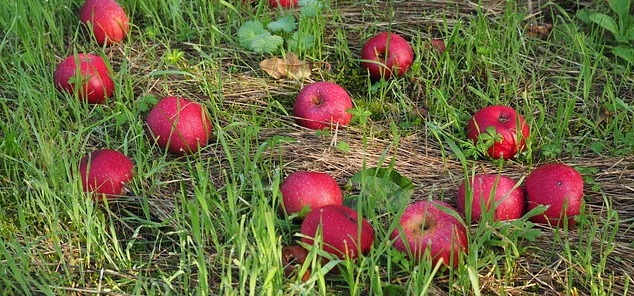
While the fruit this time of year begins to disappear from tree branches, there still may be plenty on the ground. Before you pluck up those apples and throw them into the press, you should know some of the basics of turning these ground-dwellers into your favorite drink.
- Regulations & Food Safety
Make sure you know what’s legally allowed and not allowed in your country. In the U.S., growers must follow the Food Safety Modernization Act’s Produce Safety Rule. The Produce Safety Rule clearly states that covered produce – including apples – may not be used for human consumption unless it has undergone sufficient processing to eliminate food safety concerns. Fortunately, there are many steps that both apple growers and cidermakers can take to ensure safe practices and products when using ground-harvested fruit for cider. One of the best steps is fermentation, as high ethanol concentrations and the low pH of the cider together help eliminate human pathogens.
2. Method of Harvest
Gathering the fruit from the ground needs to happen relatively quickly to prevent further rot or animal scavenging. The quickest, most efficient way to scoop up your apples is to use a mechanical sweeper on your orchard floor, though this may be a major capital investment. The other option is to pick up the fruit manually. Regardless of if you’re using machine power or human power, make sure you’re able to get there soon after the apple meets the earth.
3. Immediate Sorting and Processing
One of the downfalls of windfalls is that the fruit can get bruised and beaten on its journey from the branch to the ground. While apples can usually be stored for weeks or months before processing (depending on the fruit maturity at harvest), ground-harvested fruit may quickly begin to rot and must therefore be processed immediately. Make sure that you also sort out any “bad apples” before crushing and pressing. Also, mature apples can be softer than their earlier-harvested counterparts, so be sure to build in some extra time for troubleshooting your crushing and pressing operations.
4. Cidermaking and Fermentation
Apples fall from the trees when they’re ripe, so ground-harvested fruit may have more sugar (and therefore a higher alcohol potential) than when fruit is harvested and processed earlier in the season. The presence of fruit rot may also result in higher levels of acetaldehyde, a compound that affects SO2 binding. If molds take hold, they can raise the pH, so it’s extra important to sort out rotten fruit and make pH adjustments if necessary. You might also notice different flavors and sensory characteristics!
5. Sustainability
Cider business owners must always be aware of their triple bottom line (profits, planet, people). Using dropped apples may be good for the planet by reducing food waste and for your business by making full use of available resources. However, will your employees develop injuries from bending down to pick up apples repeatedly? Will you lose significant time (and therefore money) if you have to stop frequently to clean out the gummy apples from the crusher? What additional steps will you need to take to ensure your product truly is safe from foodborne pathogens, and what will they cost? Make sure your use of ground-harvested apples is sustainable for you, your environment, and the people who depend on you.
There’s no one-size-fits-all solution for making cider with ground-harvested fruit. However, if you keep in mind these 5 points, you are well on your way to having some serious dropped knowledge.
Get to Know Your Board Member: Talia Haykin
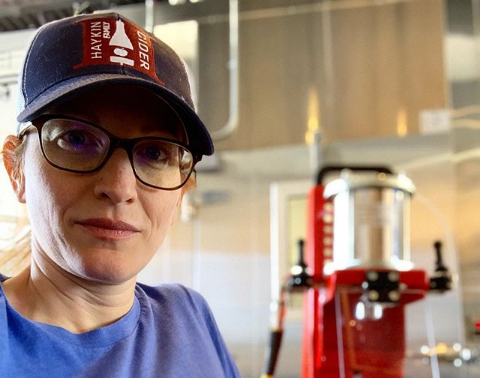
Here’s another installment of Get to Know Your Board Member. Meet Talia Haykin, representing the Mountain West Region, including the states of Arizona, Colorado, New Mexico, Nevada, Utah, Wyoming, South Dakota, North Dakota, Kansas, Nebraska, Oklahoma, and Texas.
Where do you work and what is your position?
I own Haykin Family Cider with my husband Daniel. He is the cidermaker and I basically do everything else. We joke that I am the CEO/COO/CMO/CFO/CSO and any other C’s you can think of along with – salesperson, packaging expert, club manager, inventory specialist, and occasionally, bartender.
Do you work in cider full time? If not, what is your other job?
These days I mostly work in cider though I maintain my freelance business doing marketing, social media strategy, content creation, and occasionally website building. Oh and being a mom. That’s my other full time job.
How did you get into cider?
It was a complete accident. We made our first batch on October 30, 2013 just for fun and it spiraled into a business. We swore up and down that we would never professionally make cider and here we are.
Why did you decide to run for a position on the board?
I have worked in non-profit management for a long time. My last position was as the CMO of a large Jewish non-profit. I have worked in conjunction with and served on boards for a long time but not in the past few years. I worked with Michelle and the marketing committee as well as the CiderCon committees and really enjoyed it.
What are your hopes for the future of the US Cider Industry?
I hope we will be fully recognized as a legitimate and historical beverage. I hope people will see the stratification of our industry in similar ways that they view wine, beer, and spirits. There’s something for everyone and it doesn’t always boil down to “dry” and “sweet.”
How do you describe your cider region?
Impressive. Not only from a cider perspective (Colorado really pulls our weight at competitions and on the market) but also from an apple perspective. We grow exceptional fruit here in Colorado. Sometimes an early or late frost knocks us out completely but when we have the apples, they are amazing.
What’s your favorite apple to work with and why?
Tough question. Since we focus on single varietals, we get 40+ different apples to work with plus small batches of things that go into our blends. Honestly, my favorites are the ones that I can bring home to my kids. In season, we always have a huge box of Akane or Esopus Spitzenberg apples at our house. They also happen to make exceptional ciders.
What is your favorite cider/food pairing?
Again tough question. Daniel and I tend to focus so much on the flavor profile of the cider that we forget to eat with it. However, we have worked with some awesome chefs and foodies. Maybe cheese and cider? We did an awesome five-course cheese pairing with my friend Colleen from Behind the Rind and I was able to taste incredible flavors in both the cheese and cider that weren’t there on their own. I also like a cider that pairs well with a full meal. Our 2018 Dabinett was so awesome – we brought a magnum to Thanksgiving dinner and it paired perfectly from appetizers to dessert!
What is your favorite nature/cider pairing?
I do love chilled cider in a sparkling wine glass at a nice hotel in the mountains… 😉
What would you like our members to know about you that they might not know?
Coming from a family of generations of rabbis, my dad hoped I would follow in his footsteps but I was dead set on pursuing acting. Before marketing and cider, I was a professional actress. There’s still a video from a commercial I did for CZ-USA floating around the internet.
Get to know the rest of your board members at Who We Are.
CiderCon® 2021 Registration is Officially Open!

The 11th annual CiderCon® is happening during February 3-5, 2021. Ready to grab your tickets? Click here!
We are STOKED to start unveiling all the exciting components of this global virtual cider conference! Make sure you are following along on Twitter, LinkedIn, Instagram and Facebook for fun CiderCon® updates throughout the coming months.
What’s new for CiderCon® next year?
The answer is A LOT! We’ll get you started with these highlights:
- We’re grabbing the virtual bull by the horns and taking full advantage of this opportunity to host CiderCon® online. Our Virtual Trade Show is not to be missed (Hint: Easter eggs. All the easter eggs!). Interested in having a booth at our virtual show? Reach out to Ellen!
- ACA is offering BULK discounts for companies purchasing multiple CiderCon® tickets this year! Individual member-priced tickets are just $95. Contact Ellen for your discount code today.
- A special VIP CiderCon® swag bag sale is helping us raise funds for the Cider Production Education Fund set up by the Cider Institute of North America (CINA). CINA will match all donations until they meet their goal of three full scholarships for their online Foundation class in 2021. Visit our website to learn more about this!
- Flexibility of the virtual stage is allowing us to jam pack CiderCon® with educational sessions from cutting edge beverage, business and cider experts from all over the world. We are confirming more and more speakers each week, but let us kick things off by introducing you to our THREE main stage speakers:

Justin Doggett
Justin is the owner and founder of Kyoto Black, a small coffee business located in Edgewater, Chicago. Kyoto Black focuses exclusively on the Kyoto style slow drip method of brewing. Though Kyoto Black sprang forth from a simple hobby it now employs both him and his wife. Justin was an early adopter in the cold brew coffee craze and Kyoto Black is set to emerge from 2020 even stronger than before.

Michael Uhrich
Michael is the founder and chief economist of Seventh Point Analytic, former chief economist at the Beer Institute and former head of marketplace intelligence at MillerCoors. His estimates, forecasts, and analyses have informed billions of dollars in investments and improved performance among countless businesses large and small.
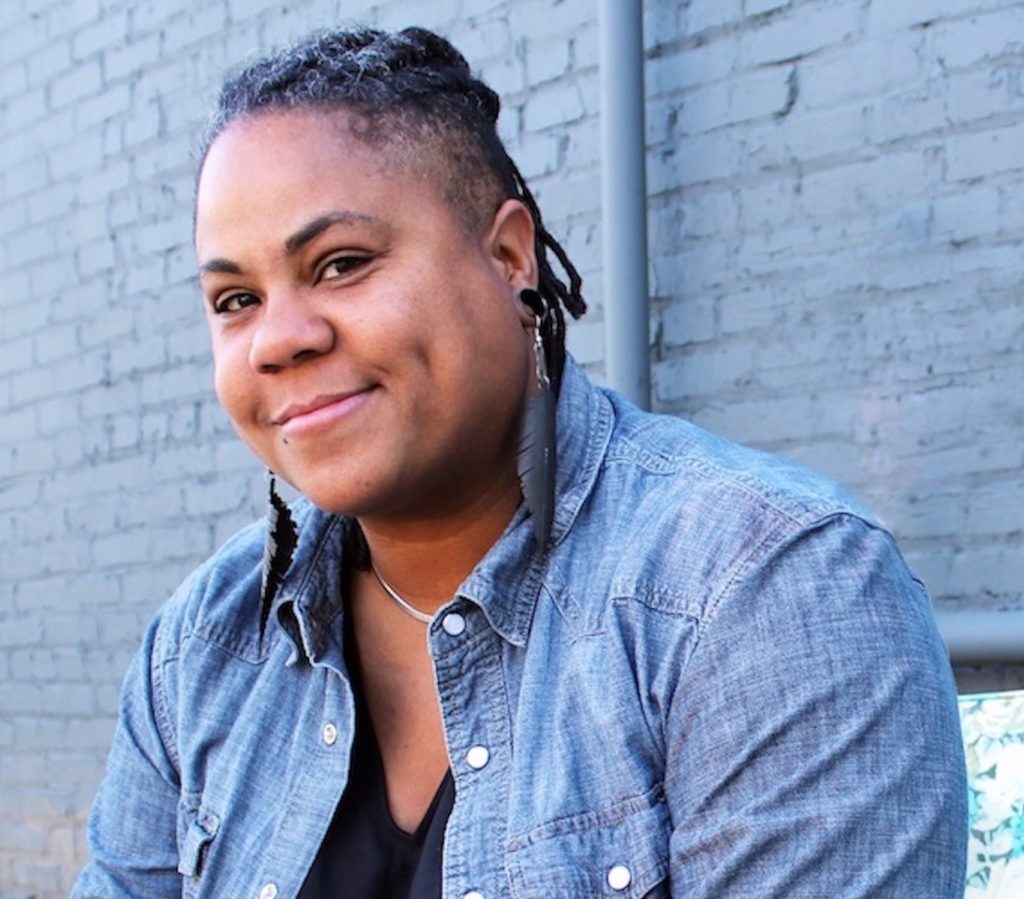
J Nikol Jackson-Beckham, Ph.D.
Dr. J is a scholar, writer, and equity and inclusion strategist who provides consulting and training to individuals and organizations in craft brewing industries. She is the founder of Crafted For All, a platform that works to bring the diversity of craft beverages to people and the diversity of people to craft beverages.


